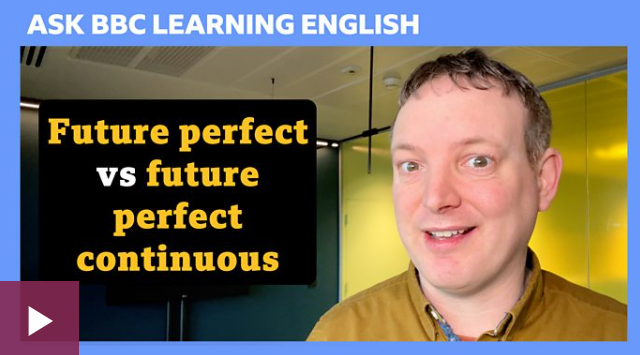Introduction
Ali has sent us a question. He wants to know the difference between the future perfect and the future perfect continuous. Phil has two similarities and five differences to share.
Similarities
1. Both the future perfect simple and the future perfect continuous look to a point in the future and then look back.
2. Both these tenses need to have a time reference to define the future point. It might be a specific time or date like ‘by Tuesday’ or it might just be clear what point it is referring to, for example, ‘when we get to the party.’
Differences
1. We use the future perfect for actions that are completed at the specified point in the future.
- By the end of today, I will’ve found five new clients.
2. We can use the future perfect to answer the question ‘how many?’ because it refers to completion.
- How many emails will you have sent by the end of today?
I will’ve sent seven.
3. We use the future perfect continuous to talk about things that will still be in progress at the specified point in the future.
- By this time next week, we will have been working on the project for five weeks.
4. We can use the future perfect continuous to answer the question ‘how long’, as it focuses on the action itself.
- By August, how long will you have been working here?
I will have been working here five years by then.
5. We don’t use the future perfect continuous with state verbs. Use the future perfect instead.
- By September I will have known how to speak Spanish for twenty years.
